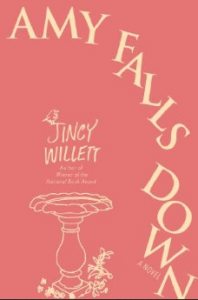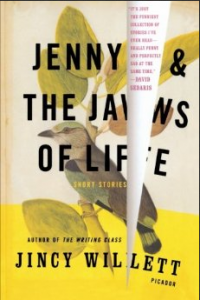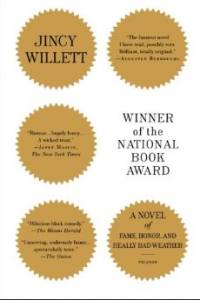I almost forgot to update on how the school volunteering thing is going. First of all, the comments on that post were SO HELPFUL. I find it so soothing to have a list of ANSWERS—I think partly because it makes me think “Other people go through this too” and “Other people need to think these things out too rather than just Naturally Handling It,” and partly because I feel like I have a Next Thing to Try, and then a Next Thing if that doesn’t work, and so on.
Anyway, I did my first official shift (so far I’d only done training), and there is one bad news and two good news. The bad news is that the woman in question is even worse than I thought. After I’d gone away from her the first time and calmed down a bit, I’d started to feel like she might be manageable after all, and/or that maybe I’d just had a bad first impression. But no.
I am tempted to say “She is awful” as if it were an objective fact—and that is certainly how I say it in my brain, with incredulity: “She’s awful! She’s AWFUL!” And I DO think a satisfying percentage of people would ALSO find her awful, if I could take a survey (*drifts into reverie, considering how fun that would be*).
And yet it seems clear to me that some of this is more like a chemical reaction. Do you get that, sometimes, with certain people? Like, it’s like EVERYTHING THEY DO hits you wrong, and if you tried to explain to someone else what the person in question had done it wouldn’t sound all that awful? That’s part of what’s going on here. I couldn’t even focus enough to give some of the Next Things to Try a fair shot, because it was like electrical interference. She’d say something and I’d want to burst into tears. It felt so hopeless to even attempt a reply—like, the FACT OF HER EXISTENCE was too much for me to cope with, let alone whatever she’d just said.
Fortunately this kind of thing doesn’t happen often, but when it does I’m curious what percentage of the time it’s a reciprocal feeling. Like, when I feel like I can’t tolerate the mere existence of another person, how often is that other person completely neutral about me and/or even favorably inclined toward me, and how often do I set their teeth equally on edge? It’s probably similar to the percentages with romantic sparks, where one person can be Really Feeling It and it seems like the other person MUST be feeling it too—and yet the other person is completely flat-line. Or sometimes the sparks are completely reciprocal, or sometimes the person likes the other person enough to be friends, but there are no romantic sparks, or WHATEVER. People don’t always feel the same way about each other, is I guess my Captain Obvious point here, and it would be interesting to have a chart of that.
So that’s the bad news. Do you know that song The Twelve Pains of Christmas, where the woman who mentions her in-laws is holding it together pretty well until she blurts out tearfully “She’s a witch I hate her!!” during the verse about the eleventh pain of Christmas? That is how I feel. It’s a panicked, tearful kind of dislike. Or maybe this video clip from Clue is a better way to describe it:
HERE IS THE GOOD NEWS. There are two. The first should probably count as more than one, because it’s “basically everything else”: I like all the other people I’ve met so far, and the job itself is good, and it went well, and it’s just the right level of work and flexible scheduling for my first crack at this. And also the first good news includes that I don’t think the other people there like this woman either, though they seem better able to handle her (but perhaps I seem that way to them, too), and they DO seem to like ME, and I felt like we were compatible and things were likely to go well. One of the other people there made a statement everyone else disagreed with, and she registered that from our awkward non-responsiveness, and so she changed the subject—unlike the awful woman, who in that scenario pushes harder and tries to force agreement.
The SECOND part is that I HAD THE WOMAN’S NAME WRONG. So when I’d thought I’d inadvertently signed up to work with her for five of the six days I started out with, I WAS LOOKING AT SOMEONE ELSE’S NAME. I THOUGHT it was the awful woman’s name, BUT IT IS NOT. So I will have to look again at the schedule to see if I’m just ALSO working with the same THIRD person every time—but it’s more likely I inadvertently avoided her almost completely. And of course now that I know her, I can try to avoid her, as long as she signs up first. And if I want to get bold about it, I can keep asking for the schedule as if I’ve had something come up, and I can keep scribbling out my name and putting it on different days or whatever.
Don’t you wish sometimes that you could access the hive mind and find out what percentage of other people dislike someone you dislike? Imagine how wrongfully delightful it would be to find out that no one else likes someone either! I suppose that would be more than counteracted by the horror and despair of the times when you’d find out that actually a majority found the person you disliked just wonderful. Plus I’d feel some pity for her if I found everyone agreed with me. Okay, so I don’t wish I could access the hive mind. I DO wish, however, for several other parents to make subtle remarks over the next few months that let me know (without it turning into back-biting, because that feels wonderful at the time but comes with a nauseating hangover) that they don’t like her either.



